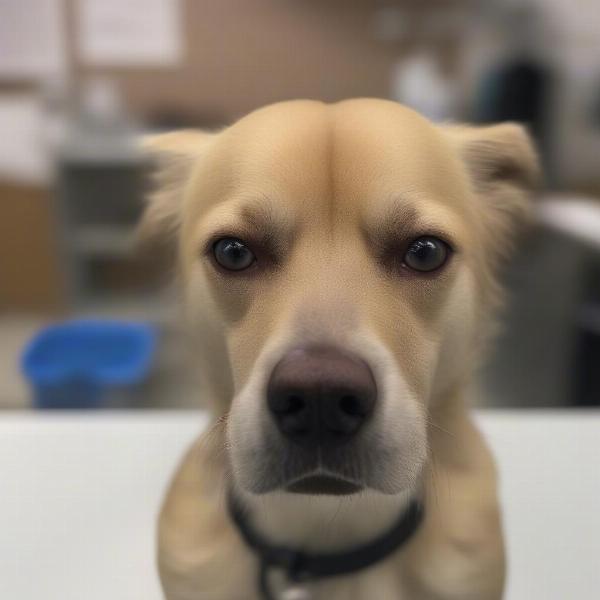If your furry friend has suddenly started pooping in their crate at night, it can be a frustrating and concerning situation. Understanding the reasons behind this behavior is the first step to resolving it. This article will explore the various causes, from medical issues to behavioral triggers, and offer practical solutions to help your dog feel comfortable and secure in their crate again. We’ll cover everything from establishing a consistent potty routine to addressing potential anxieties.
Why is My Dog Pooping in Their Crate at Night?
Several factors can contribute to a dog suddenly pooping in their crate at night. It’s essential to consider all possibilities and rule out any underlying medical conditions before addressing potential behavioral issues.
Medical Reasons for Crate Soiling
Sometimes, a medical issue can be the culprit behind nighttime accidents. Conditions like intestinal parasites, inflammatory bowel disease, or even cognitive decline can affect a dog’s ability to control their bowels. If your dog displays other symptoms like vomiting, diarrhea, or lethargy, consult a veterinarian immediately.
 Dog Showing Signs of Digestive Issues
Dog Showing Signs of Digestive Issues
Behavioral Reasons for Crate Soiling
If medical issues are ruled out, behavioral reasons are the most likely cause. These can include:
- Inadequate Potty Breaks: If your dog isn’t given enough opportunities to eliminate before being crated for the night, accidents are bound to happen.
- Stress and Anxiety: A new environment, loud noises, or separation anxiety can trigger stress and lead to soiling.
- Crate Training Issues: If your dog hasn’t been properly crate trained, they may view the crate as a punishment or feel uncomfortable inside.
- Change in Routine: Any disruption to their daily routine, such as a change in feeding schedule or a new family member, can upset a dog and lead to accidents.
How to Stop Your Dog From Pooping in Their Crate
Once you’ve identified the potential cause, you can implement solutions to address the problem.
Establish a Consistent Potty Routine
A regular potty schedule is crucial for preventing accidents. Take your dog out for a potty break just before bedtime and first thing in the morning. For puppies, more frequent breaks throughout the night may be necessary.
Create a Positive Crate Experience
Make the crate a comfortable and inviting space for your dog. Provide soft bedding, a favorite toy, and treats to create positive associations with the crate.
Address Stress and Anxiety
If stress is a factor, identify the source and try to minimize it. Consider using calming aids like pheromone diffusers or anxiety wraps. Consult a veterinarian or professional dog trainer for advice on managing anxiety.
Review Crate Training Methods
Ensure your dog has been properly crate trained. Introduce them to the crate gradually, using positive reinforcement and avoiding forcing them inside. Never use the crate as punishment.
Conclusion
Addressing nighttime crate soiling requires patience and understanding. By addressing both medical and behavioral factors and implementing the strategies outlined above, you can help your dog feel comfortable and secure in their crate again, ensuring peaceful nights for both of you.
FAQ
-
How often should I take my puppy out at night? Puppies may need potty breaks every 2-4 hours depending on their age and bladder capacity.
-
Can changing my dog’s food affect their bowel movements? Yes, dietary changes can impact digestion and lead to changes in stool consistency and frequency.
-
Is it okay to scold my dog for pooping in the crate? No, scolding will likely worsen the problem and increase your dog’s anxiety. Focus on positive reinforcement and addressing the underlying cause.
-
When should I contact a veterinarian? If your dog exhibits other symptoms like vomiting, diarrhea, or changes in appetite, consult a veterinarian.
-
How long does it take to correct crate soiling? The timeframe varies depending on the cause and the dog’s individual response to training and management strategies.
ILM Dog is your trusted source for expert advice on dog care and training. We offer comprehensive information on dog breeds, health, nutrition, behavior, and much more. From choosing the right breed to addressing specific challenges, ILM Dog empowers you to be the best dog parent you can be. For expert guidance, contact us at [email protected] or +44 20-3965-8624. Visit ILM Dog for more valuable resources and information on all aspects of dog care.